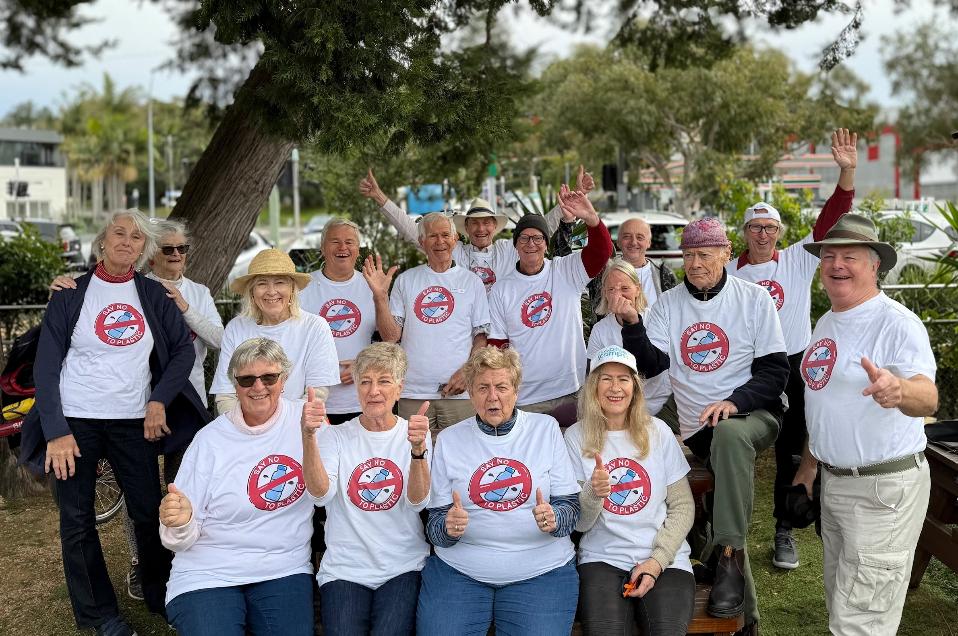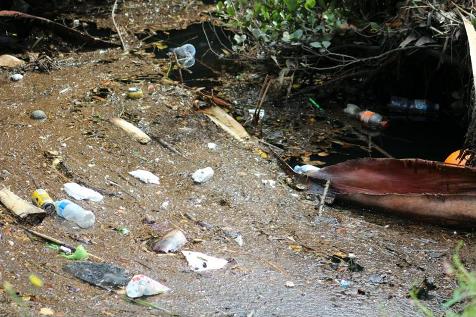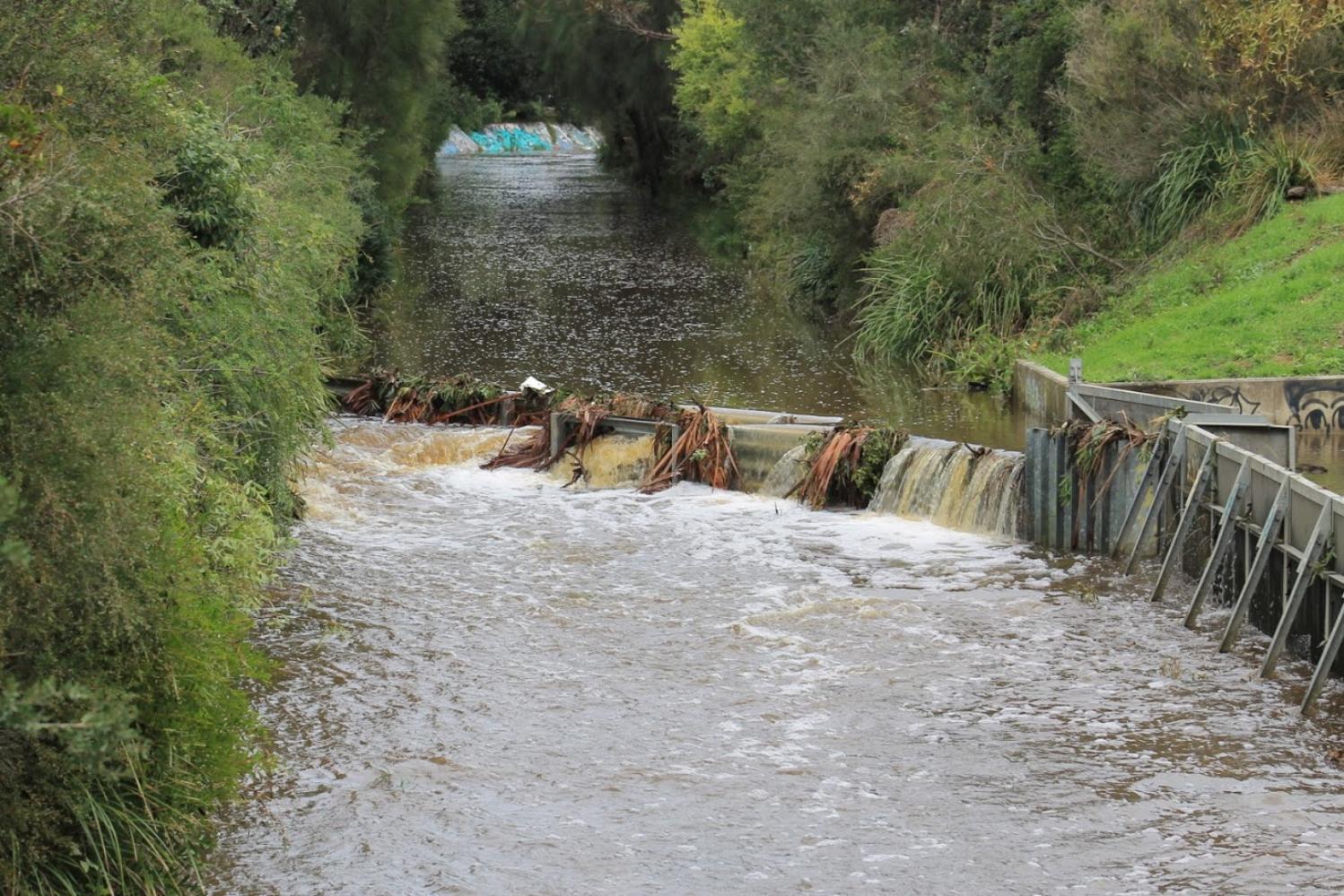July 1 - 31, 2025: Issue 644
Say No To Plastics - Net Bags for Veggies while shopping

In 2022-23, NSW alone generated 891,000 tonnes of plastic waste. Only 14% of this material was recycled. About 79% of litter washed into our waterways is plastic. Plastic litter can have disastrous consequences and significant cost on the environment and communities.
Barbara Elkan has kindly shared some news on a local initiative to bring back the use of reusable string bags for veggies when you're shopping.
String bags or bags made from compostable materials such as woven reeds have been around from time immemorial. During the 1930s, string bags, also known as mesh or net bags, were a common and practical item for shopping in Australia. They were lightweight and could hold items of various shapes, making them a popular choice for carrying groceries and other purchases. While they had some drawbacks, like the tendency for items to fall out if not carefully placed and the potential for getting caught on clothing, their affordability and convenience ensured their continued use.
What's more they were not going harm the environment or all other animals living in it through being carelessly discarded or because they were made from something unable to be recycled.
Barbara shared that you can actually buy a version of these - 3 for $1.50 - at Woollies and Coles.
Woolworths states that in recent years, they’ve removed more than 800 tonnes of plastic from their fruit and veg range and plan to keep that momentum as they continue to reduce plastic and increase their use of recycled content. In June 2022 they announced the discontinuation of their use of those white and green 'recyclable plastic bags' your shopping could be packed in, removing a further 9,000 tonnes of plastic from circulation annually.
But the ubiquitous plastic bag for those grapes, apples and potatoes is lingering.
Our home delivery shop from Woollies each week comes packed in papers bags now - even the green beans are in a smaller paper bag - just as they were when many of us were younger. But some fresh items, such as apples or pears, although they will turn up in a recyclable cardboard box, are wrapped in plastic. The option there is to choose our apples and pears singly, and then they will come just as they are in the paper bag.
All we have to do, as individuals choosing what to do, is opt for the plastic-free choice.
This Issue a few insights on this next local focus on eliminating plastics from our own and others food chain.
Why and when did this start – how many are involved and what is the objective?
About 1 year ago we started with just a small group of 6. At present there are over 40 people who have paid $35 each to purchase “Say No To Plastics” T shirts. Our small group of 6 has also set up tables at markets, displaying plastic free alternatives to a range of supermarket products.
Our objective is at present to attempt to heighten public awareness of the huge problem with plastics and to offer alternatives to particularly soft plastic produce bags.
We are asking everyone who has a T shirt to visit supermarkets and offer 1 of these mesh bags to shoppers who are tearing off soft plastic bags from the rolls of them in every supermarket. They can then be directed to when they can buy more.
How can people become part of the Say No to Plastics Please - String Bags Instead of Plastics crew?
These mesh bags are available at Woolworths and Coles for $1.50 for a bundle of 3.
They are not displayed at all obviously so we are intending to make signs to make it more obvious what they are.

What do the members want the NSW Government to do in this regard?
We support the NSW Government’s “NSW Plastics: The Way Forward Plan”.
We have also approached Northern Beaches Council re introducing curb side collection of specially labelled soft plastics. At present this programme hasn’t been approved, so we are encouraging people to use the recently reinstated soft plastics collection bins on trial in some Woolworths stores. We know that Woolworths have a contract with IQRenew, so are confident that there won’t end up with the huge stockpiles resulting from the demise if RedCycle.
We have also had meetings with Sophie Scamps, 1 of whose missions is to address the issue of plastic in the environment.
Over 10 years ago Boomerang Bags Avalon was among the first to commence the rollout of reusable cloth bags and the pushback against plastic bags choking our waterways, bush reserves and wildlife – is this a similar mission with a similar objective?
Our mission is similar to Boomerang Bags, but we are encouraging people to buy bundles of 3 of these mesh bags to keep and reuse many many times whenever they are buying fresh produce. We also encourage people to place goods with their own skins, such as bananas and citrus, straight into baskets or trolleys. Another good option for small items such as beans is to use paper bags which are usually placed in front of mushrooms.
Any ‘motto’ for the group?
Our motto is “Say No To Plastics“, which is printed on our T shirts.
We have been in regular contact with IQRenew, the company NB Council has a contract with. We are aware that they are able to recycle large quantities of soft plastics at their new purpose built facility in Taree. They are in partnership with a company, IPS who make a large range of products from the material recycled by IQRenew.
About the NSW Plastics: The Way Forward Plan
Preceded by: NSW Plastics Action Plan
 The NSW Plastics Action Plan set out the first six actions to achieve four long term outcomes to better manage plastics and reduce the impact they have on the environment.
The NSW Plastics Action Plan set out the first six actions to achieve four long term outcomes to better manage plastics and reduce the impact they have on the environment.
The NSW Plastics Action Plan (PDF 2.1MB) was launched in June 2021 to manage plastic throughout its lifecycle – from generation through to production, supply and reducing plastic waste. It forms a key part of the NSW Government’s Waste and Sustainable Materials Strategy 2041 and outlines a comprehensive suite of actions to address plastic at all points of the plastics lifecycle, from production and consumption to disposal and recycling.
The 4 long-term outcomes set out in the plan aim to:
- reduce plastic waste generation
- make the most of our plastic resources
- reduce plastic leakage
- improve our understanding of the future of plastics.
These outcomes were to be achieved through the phase out of certain problematic or unnecessary plastic products, accelerating the transition to more sustainable and less harmful plastic products by funding innovation and research, and better managing the leakage of problem plastic litter.
Phase-out of single use plastic items
The Plastic Reduction and Circular Economy Act 2021 gives effect to the government's commitment to phase out the supply of certain problematic single-use plastic items and set a design standard to prevent the supply of plastic microbeads in some rinse off personal care products. The state government granted an exemption to permit the supply of single-use plastic straws to people with a disability or other medical need.
Until 1 January 2025, the bans did not apply to integrated packaging.
The NSW EPA is the sole regulator of the Plastic Reduction and Circular Economy Act 2021 (PRCE Act) and plays a pivotal role in delivering this legislation including by regulating and monitoring certain types of plastic items supplied into or within NSW. The definitions of each item are contained in Schedule 1.
To further support the key outcomes from the NSW Plastics Action Plan, the EPA was then to also provide incentives for industry (such as grants) to encourage greater innovation and investment in sustainable alternatives and increase the reuse and recovery of plastics.
The NSW EPA states they are working with stakeholders, such as suppliers and retailers, in raising awareness of, and ensuring compliance with, the plastics phase-outs. This important work ensures the EPA continues to deliver on its purpose; to ensure a healthy and thriving environment for the future.
Under the NSW Waste and Sustainable Materials Strategy: Stage 1 2021–2027, NSW adopted several targets. The actions outlined in the plan were to help to meet these targets, including to:
- phase out problematic and unnecessary plastics by 2025
- reduce the total waste generated in Australia by 10% per person by 2030
- achieve an average 80% recovery rate of resources from all waste streams by 2030
- significantly increase the use of recycled content by government and industry
- reduce plastic litter items by 30% by 2025
- reduce the overall litter by 60% by 2030
- triple the plastics recycling rate by 2030.
National waste targets then included:
- phase out problematic and unnecessary plastics by 2025
- ban the export of waste plastic, paper, glass and tyres, starting in 2021
- reduce the total waste generated in Australia by 10% per person by 2030
- recover an average 80% of resources from all waste streams by 2030
- significantly increase the use of recycled content by government and industry.
The Plan presented a package of actions supported by analysis of the economic and technical feasibility, costs and benefits then used.
In September 2024 the EPA sought feedback on NSW Plastics: The Way Forward with feedback open until Monday 4 November 2024.
The NSW Plastics: The Way Forward action plan proposed new initiatives including:
- phasing out items like plastic lollipop sticks, pizza savers and food tags for bread, bakery and pantry items
- bringing NSW into line with other states and phasing out the release of lighter-than-air balloons as well as the supply of plastic balloon sticks, clips and ties
- introducing design standards for single-use plastic cups, food containers and their lids to ensure they are easily recyclable
- phasing out the supply of unnecessary plastic barrier bags.
To effectively tackle the single-use, unnecessary, and problematic plastic items and materials, NSW Plastics: The Way Forward proposes actions to:
- reduce highly littered plastic items in the environment
- remove harmful chemicals from plastics and prevent the release of microplastics into the environment
- align with the approaches of other states and territories in Australia, where doing so will achieve better outcomes for the environment, communities and businesses.
The NSW Government consulted with the community, environment groups, businesses, industry, and other key stakeholders to understand whether the actions put forward in the paper will be an effective way to reduce the harm of unnecessary and problematic plastic in our society, including:
- the proposed actions (including scope, timings and exemptions)
- the potential benefits and risks associated with the proposed actions
- alternative options that should be considered by the NSW Government.
The EPA webpage for this next phase states Feedback on the NSW Plastics: The Way Forward is being reviewed.
A report outlining the feedback we received during the consultation will be finalised once the review has occurred.
In the meantime - everything old is new again and part of returning a whole cycle to our everyday life.
Please grab yourself a string bag :)
And say No to Plastics please.
From Issue 519 - November 2021
Phasing Out Single-Use Plastics In NSW
 On November 16 2021, the NSW Government passed the Plastic Reduction and Circular Economy Act 2021. This legislation delivers on the government’s commitment to ban certain problematic plastics, such as single-use plastics and address the problem of plastic waste.
On November 16 2021, the NSW Government passed the Plastic Reduction and Circular Economy Act 2021. This legislation delivers on the government’s commitment to ban certain problematic plastics, such as single-use plastics and address the problem of plastic waste.From 1 June 2022 The Following Will Be Banned:
- barrier bags such as bin liners, human or animal waste bags
- produce bags and deli bags
- bags used to contain medical items (excluding bags provided by a retailer to a consumer used to transport medical items from the retailer).
From 1 November 2022 The Following Will Be Banned:
- serving utensils such as salad servers or tongs
- items that are an integrated part of the packaging used to seal or contain food or beverages, or are included within or attached to that packaging, through an automated process (such as a straw attached to a juice box).
- single-use plastic bowls designed or intended to have a spill-proof lid, such as those used for a takeaway soup.
Expanded Polystyrene (EPS) Food Service Items
- meat or produce trays
- packaging, including consumer and business-to-business packaging and transport containers
- food service items that are an integrated part of the packaging used to seal or contain food or beverages, or are including within or attached to that packaging, through an automated process (such as an EPS noodle cup).
Single-Use Plastic Cotton Buds And Microbeads In Certain Personal Care Products
- polyethylene (PE)
- polypropylene (PP)
- polyethylene terephthalate (PET)
- polymethyl methacrylate (PMMA)
- nylon (PA).
